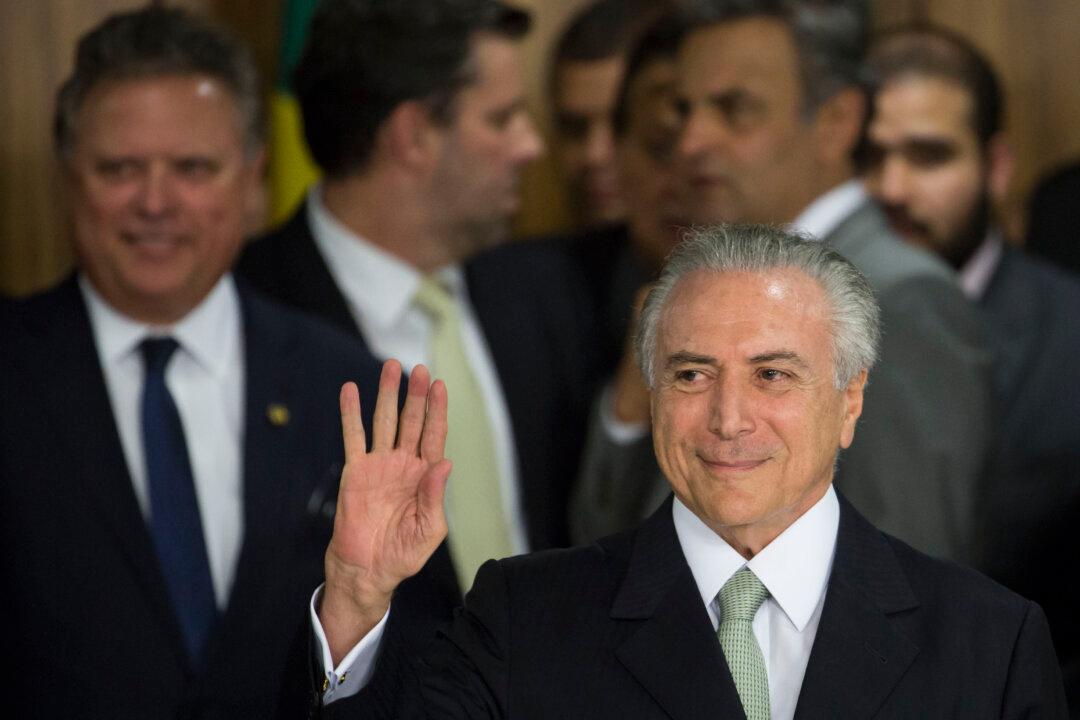BRASILIA, Brazil—The new acting president is calling for unity in Brazil, while the leader just suspended by the Senate is vowing to fight what she calls a coup, underscoring the deep political polarization in Latin America’s most populous nation.
The disparate visions came just hours apart in the same narrow hall in the presidential palace after the Senate voted 55-22 Thursday to impeach President Dilma Rousseff, putting her vice president, Michel Temer, in charge.
Rousseff, whose popularity has plummeted amid the worst recession since the 1930s, is accused of using accounting tricks to hide large deficits in the federal budget. Opponents argue that damaged the country, but Brazil’s first female president called it a baseless case cooked up so elites who loathe her leftist Workers’ Party could snatch back power.
Temer moved quickly to announce a new Cabinet and said his government’s first priority is to get Brazil’s stalled economy going again. He also promised to support the widening investigation into corruption at the state oil company that has already ensnared leading politicians from a variety of parties and even implicated Temer himself.
Emerging a few hours after the Senate vote, Temer said it was a sober moment and made a bid for peace with Rousseff, offering his “institutional respect” for her and recognizing the impeachment campaign has caused deep divisions.






